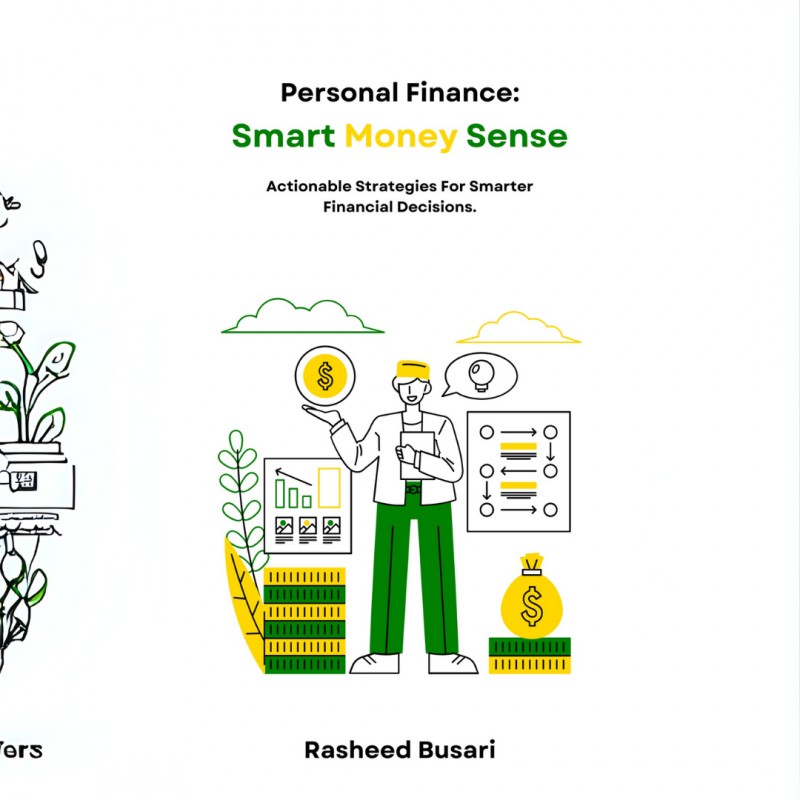Last Updated on 19/04/2025 by Rasheed Busari
Introduction

The rapid growth of fintech loan apps in Nigeria has completely changed how we access credit and make digital lending a reality in Nigeria. Today, with just a smartphone and internet connection, you can get a personal or consumer loan within minutes for school fees, rent, medical bills, or a business emergency.
Over the past few years, the rise of fintech loan apps and the increasing number of Nigerians seeking “instant loans” has become a growing concern. Among the locals, these “instant loans” are popularly known as “LAPO”, “GROOMING”, or “GBOMU LE LANTERN.
This surge is largely driven by the country’s harsh economic realities, coupled with the strict and frustrating loan conditions imposed by traditional deposit money banks. The majority go for these instant loans to meet financial challenges relating to personal and family needs.
These fintech loan apps have gained popularity mainly because they offer loans with little to no documentation and an incredibly fast disbursement process, often within minutes. For many, this speed and convenience come as a relief in tough times, but they also have a darker side that’s raising alarm.
Mr. Gideon, a lift operator earning a monthly salary of ₦70,000, urgently needed a quick loan of ₦100,000 to pay his child’s school fees. While browsing through his Facebook feed, he came across an ad offering instant loans of up to ₦300,000 with interest rates as low as 11% per month. It seemed like the perfect solution to his financial crisis.
Without thinking twice, Mr. Gideon jumped at the offer and applied for a ₦100,000 loan. To his surprise, the money was credited to his account within two minutes, no paperwork, no office visit. He was thrilled that he could settle his child’s school fees almost immediately.
However, in his excitement, Mr. Gideon failed to carefully read or understand the pre-approval and post-approval conditions attached to the loan, the dark side of instant loans from fintech loan apps. That costly mistake would soon come back to haunt him.
So, how can you use a loan app without falling into a debt trap? This article will show you everything you need to know before, during, and after using a loan app in Nigeria.
The ultimate purpose of a loan should be to lift someone out of financial difficulty, not to worsen their burden or deepen their financial mess. Sadly, for many Nigerians, instant loans from loan apps that ought to be a quick fix often ends in regret, shame, and unnecessary stress.
What is a Loan App
A loan app is a mobile application that run on a smartphone or data enabled phone that allows you borrow money online with little or no paperwork. These apps use algorithms to assess your creditworthiness, verify your identity, and send money to your bank account within minutes.
Popular loan apps in Nigeria include Branch, Carbon, FairMoney, Palmcredit, Renmoney, Okash, Sycamore, FastCredit, Kuda, QuickCheck, and Aella Credit, among others.
Why Nigerians apply for Instant Loans
Instant loans continue to gain popularity in Nigeria mainly because of their quick disbursement and little to no documentation requirements. The average Nigerian dreads the stress of filling out lengthy forms, and many do not meet the basic requirements needed to access safer, more structured loans from traditional deposit money banks.
Another major attraction is the flexibility in loan amounts. Nigerians appreciate that these instant loans can range from as low as ₦5,000 to as high as ₦10,000,000, depending on the loan app’s risk assessment and user profiling. As a result, instant loan apps have become the go-to option for people seeking urgent financial relief, especially for personal and family related needs.
Below are some of the key reasons why many Nigerians see instant loans as their best short-term financial solution:
- Easy accessibility, which is solely through a mobile phone (app or USSD) or web. You do not need to visit their office or fill lengthy forms.
- Fast Disbursement, Loan approval, and crediting can happen in as little as 2 minutes.
- Flexible loan amount as small as N5,000 to N10,000,000
- No collateral required, irrespective of the amount. Even for higher loan amounts, no assets are required.
- No down payment or equity payment, or upfront payment is required before the loan will be disbursed.
- No guarantor needed. You don’t need anyone to co-sign or vouch for you.
- No visitation or physical verification of borrower location. Your location is not inspected or verified in person.
Factors to Consider when Choosing Loan Apps

The fintech revolution in Nigeria has led to a surge in the number of fintech loan apps offering both personal and consumer loans. This rise in the digital lending space has brought convenience to many, but it has also opened the door to unregulated players.
So, while the options may be many, not all loan apps are created equal, only a few of these apps are properly licensed by regulatory bodies such as the Central Bank of Nigeria (CBN), the Securities and Exchange Commission (SEC), and the Federal Competition and Consumer Protection Commission (FCCPC). So, choosing the right loan app isn’t just a casual decision, it demands rapt attention to avoid “stories that touch” and to ensure the loan requirements align with your specific financial situation.
While all loan apps are accessible via smartphones or the web, their onboarding processes, approval speeds, and disbursement methods can vary significantly. To help you choose wisely, here are some key factors you should consider:
- Repayment Period: Most loan apps offer repayment durations ranging from as short as 7 days to as long as 2 years. Make sure the timeline works for your cash flow and ask yourself: Can I comfortably repay within the given time? A longer repayment window gives you more breathing space but might come with higher cumulative interest. The longer the repayment period, the higher the cumulative interest on the loan.
- Disbursement Speed: Some apps are impressively fast, disbursing loans in as little as 2 minutes. If urgency is your case, this could be a deciding factor. If time is of the essence, maybe for an emergency, go for platforms known for fast and quick processing. At times, the quicker the disbursement timing, the higher the interest rate
- Loan Amounts: Flexibility in loan amounts is a major plus. While some apps offer as little as N5,000, others can provide significantly higher amounts depending on your profile, credit history, and relationship period with them. Choose loan amounts that align with your income level. Your loan repayment amount should not exceed at least 30% of your income/salary. The higher the loan amount, the higher the interest amount on the loan.
- Monthly Interest Rate: Interest rates are mostly charged monthly. Some apps offer rates as low as 4.5% per month, while others can go as high as 13%. Do the math and know exactly how much you’ll be repaying before you commit. This adds up quickly, so compare wisely. Always ask for the total interest amount payable as at maturity date of the loan and the interest rate payable per annum.
- Annual Percentage Rate (APR): The APR includes the monthly interest rate and any associated fees, calculated on a yearly basis. For instance, if you borrow N100,000 at 10% monthly interest with a one-time management fee of 1%, over a 12-month repayment period, your APR would be 121% (10% × 12 + 1%). Always request for the loan APR, it gives you the true cost of the loan offer.
- Regulatory Approval: Before you apply, do your due diligence. Check if the app has the necessary licenses and is approved by relevant regulatory bodies. This ensures you’re dealing with a legitimate platform. An app operating without approval might exploit users, misuse customers personal information or engage in unethical debt recovery tactics. Stick with the ones listed on CBN or FCCPC websites for your peace of mind.
- Eligibility Criteria: Requirements vary across platforms. Some apps assess demographic details (age, gender, valid ID) while others focus on financial factors like income level, credit history, account balance, and the value of your assets.
The role of Federal Competition and Consumer Protection Commission (FCCPC) and Nigeria Data Protection Act (NDPA) in Digital Lending.
The rise of loan apps in Nigeria has made access to quick loans easier, but it has also opened the door to a lot of unethical and inhumane debt recovery practices. From online shaming, threat messages, intimidation, and unauthorized public display of borrower images, to sharing personal details without consent and sending unsolicited messages to borrower’s contacts, the list is endless.
As digital lending continues to grow in Nigeria, more people are turning to loan apps for quick financial relief. While this trend has increased access to credit, it has also led to rising concerns about privacy breaches, harassment, and unethical loan recovery methods.
Due to an increase in complaints about the unethical ways of debt recovery by loan apps, the federal government mandated FCPCC to handle complaints on unethical practices relating to loan apps, while NDPA is to handle unethical sharing of borrowers’ data and personal details. These two regulatory authorities are very pivotal to sanitizing the digital lending space and ecosystem to align with global best practices and ensured only registered, responsible loan apps are allowed to operate in Nigeria.
Federal Competition and Consumer Protection Commission (FCCPC)
FCCPC plays an oversight role over digital lending platforms to ensure borrowers are not exploited, threatened, or misled. With Respect to Loan Apps, Key roles of FCCPC are:
Public Safety Campaigns: Raises awareness about licensed apps and rogue apps to sensitize Nigerians via various media platforms.
Licensing and Approval: Works with other regulators to screen and approve digital lenders.
Loan App Regulation: Partners with CBN, NITDA and other relevant regulatory agencies to enforce ethical lending practices.
Harassment Crackdown: create a task force to crack down illegal loan apps harassing Nigerians.
Complaint Resolution: Provides a platform for victims to report abuse by loan apps.
How to report harassing loan apps to FCCPC
1. Email FCCPC: Send your complaint to contact@fccpc.gov.ng.
2. Social Media: Send a direct message to FCCPC on X. @FCCPCNigeria
3. To report on the FCCPC website, log on to http://fccpc.gov.ng
Nigeria Data Protection Act (NDPA)
The NDPA is Nigeria’s law on data protection. It protects Nigerians from unauthorized collection, misuse, and sharing of personal data, especially by digital platforms like loan apps.
How NDPA Protects Loan App Users
Limits Data Collection: NDPA ensures Loan apps are only allowed to collect data necessary for providing a loan, not your contacts or photo gallery.
Requires Permission and Consent: Loan Apps must obtain clear, informed consent before accessing your personal information. Also, Loan Apps must seek your permission before using your personal information for any usage or promotional materials.
Prohibits Defamation: Sending defamatory messages to your contacts is a violation of privacy under NDPA.
Data Security Enforcement: Loan apps are mandated and required to protect users’ data against leaks or hacks.
Holds Apps Accountable: Offending loan apps can be sanctioned, fined, or shut down if they break the law.
Conclusion
Loan apps can be lifesavers in times of need, but only when chosen wisely. With so many options out there, it’s easy to get swayed by catchy adverts or promises of instant cash. However, for your sanity, safety and protection, take a moment to compare, calculate, and confirm the loan app you are using is licensed. Before you click “Apply,” on that loan app, be sure the loan aligns with your needs, financial situation, and repayment ability. Borrow smart, live stress free. Smart borrowing starts with informed decisions.





Pingback: How to Avoid Loan App Harassment in Nigeria. - THE FINANCIAL THRIVE